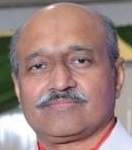24 beggars released after furnishing personal bond
Dushyant Singh Pundir
Tribune News Service
Chandigarh, November 7
Twenty-four beggars detained during the anti-begging drive in the city had to furnish personal bonds to secure their release.
Launched by the UT Department of Social Welfare, a fortnight-long ‘Beggar-Free Chandigarh’ awareness drive culminated with an event at the Old Age Home in Sector 15 yesterday.
Palika Arora, Director, Social Welfare Department, said 24 adult beggars who were caught begging during the drive were produced before the court, which released them upon furnishing personal bond. She stated that seven children were rescued during the drive and were sent to Children Home under a rehabilitation scheme of the Child Welfare Committee (CWC).
Palika stated that the drive was carried out by the Social Welfare Department in collaboration with the police, Anti-Human Trafficking Unit and the District Child Protection Unit.
Anuradha Chagti, Secretary of Social Welfare, extended her gratitude to the citizens of Chandigarh for their active participation in the drive. She emphasised that the overwhelming public support was instrumental in fostering a shared responsibility towards reducing begging and aiding vulnerable groups.
Anuradha announced that the rescue drive would continue in collaboration with key departments, including the police, Anti-Human Trafficking Unit and District Child Protection Unit. “This ongoing rescue effort aims to provide support and rehabilitation to individuals engaged in begging, with a focus on preventing exploitation and human trafficking,” she added.
“This effort aligns with provisions under relevant Acts to protect vulnerable individuals from exploitation and help them integrate into mainstream society through targeted rehabilitation programmes. Many of those rescued are not originally from Chandigarh, but hail from neighbouring states or other outstation locations, underscoring the need for a holistic approach to address the migration of beggars into the city and tackle the complex social and economic issues underlying this practice,” she added.









